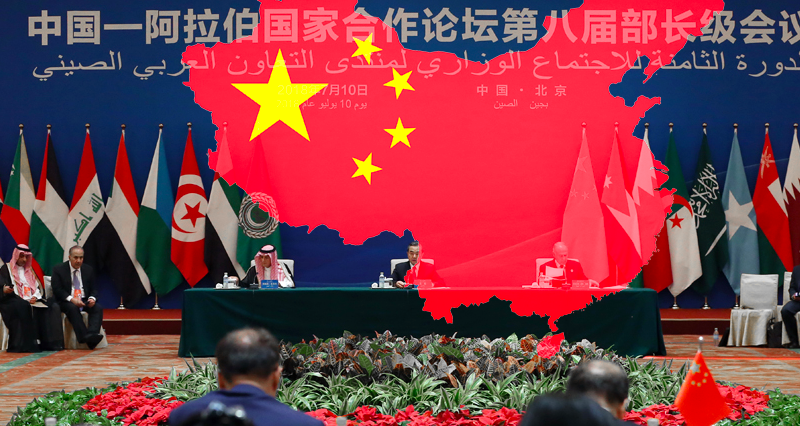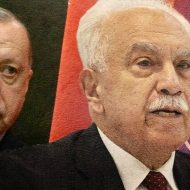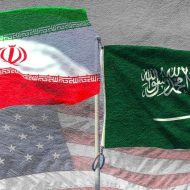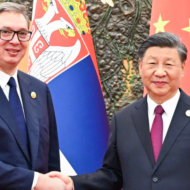By Orçun Göktürk *
In August 2021, in the days when the American troops withdrew from Afghanistan desperately and the 20-year occupation ended with the victory of the Afghan people, Saudi Arabia, one of the world’s largest arms importing countries, was signing a military cooperation agreement with the Russian Federation in Moscow. The moment when Saudi Arabia’s Deputy Defense Minister Prince Khalid bin Salman appeared with Russian Defense Minister Sergei Shoigu led to comments of “betrayal” in Washington.
The Foreign Policy (FP) magazine, one of the leading institutions of American foreign policy, published a detailed analysis of the US need for a new strategy in face of Saudi Arabia’s agreement with Russia amidst disastrous scenes in Afghanistan. “Riyadh and Tehran are rivals on almost every issue, yet both countries support Russia and China,” the FP analysis began, revealing the US dilemma.
The developments in the region show a picture of the post-US international order. The United Arab Emirates’ (UAE) withdrawal of the purchase of F-35 fighter jets from the United States by cancelling a $23 billion deal, the Arab countries’ resumption of diplomatic relations with Syria and the increasing strategic relations with the People’s Republic of China are the footsteps of the New World.
The history of China-Arab relations
Sino-Arab relations are dating back two thousand years. The Prophet Muhammad was influenced by the advanced Chinese civilization through the Silk Road and said: “True knowledge should be learned intently, even if it could only be found in a country as far away as China.” Interest in China in the Islamic world has increased since then even more. The historical foundations of Sino-Arab relations were laid centuries before the Western world started to have embassies in countries with the Peace of Westphalia in the 17th century, when an envoy was sent to China in 651 during the reign of The Third Caliph Hazrat Uthman.
States’ struggle for independence and China-Arab relations
In the 1950s, the struggles of Arab countries against imperialism and colonialism received great support from China. The two biggest supporters of Egyptian leader Gamal Abdel Nasser’s nationalization of the Suez Canal were the USSR and the PRC. In 1956, against the imperialist-Zionist war of Britain, France and Israel against Egypt, the then Chinese Prime Minister Zhou Enlai called Gamal Abdel Nasser and conveyed his support by saying “Chinese government decides to grant the Egyptian government 20 million Swiss Francs in cash free of any charge”.
In the same period, China supported the struggles of Arab countries such as Lebanon and Palestine against Western aggression, especially the National Independence Movement in Algeria.
Significant impact of the Belt and Road Initiative
The above-mentioned facts show that the origins of the relations between China and the Arabic world are not financial, but rather rooted in a brotherhood born out of a common class struggle. The political and economic relations built on this basis have been further enhanced by the great interest in the Arab countries in the Belt and Road Initiative (BRI) announced by Xi Jinping in 2013.
The Multipolar International Order, which becomes more and more apparent, offers the Gulf countries the opportunity to act more independently in foreign policy. Especially the increasing trade volume with China and Saudi Arabia, together with the overlap between Saudi Arabia’s “2030 Vision” and BRI, hints at important geopolitical developments in the coming years.
China’s growing market and energy needs increase the strategic importance of the Arab states. Moreover, the fact that two of the Straits of Gibraltar, Hormuz, Malacca and Bab-el-Mandeb, which provide China’s commercial connection with the world markets, are located in the Arab world increases this importance.
Half of China’s daily oil requirement of 10 million barrels passes through the Arab world and the Strait of Hormuz.
Under the BRI, China established strategic partnerships with Algeria and Egypt in 2014, Saudi Arabia and the UAE in 2016, Qatar in 2014, Iraq in 2015, Morocco and Oman in 2016. As of January 2022, 20 Arab states have signed cooperation agreements with China under the BRI in various fields such as energy, investment, trade, finance, infrastructure and advanced technology.
China and Arab countries established the China-Arab States Cooperation Forum in 2004 and the China-Arab States Expo in 2013. In 2018, the Declaration of Action on China-Arab States Cooperation under the Belt and Road Initiative was signed.
Biggest investor in the Arabic world
China is the largest investor in Arab countries with investments worth 214 billion dollars between 2005-2021. In 2021, the trade volume of China-Arab countries exceeded 330 billion dollars, setting a new record.
There have also been significant achievements in space exploration and medical co-operation between China and the Arab states in recent years. In 2021, China and the Arab states signed the China-Arab States Satellite Navigation Plan, which will lay the foundation for China-Arab states space technology cooperation in the coming years. In response to the COVID-19 pandemic in early 2020, Chinese medical companies Sinopharm and Sinovac signed cooperation agreements with the UAE and Egypt to produce and store COVID-19 vaccines.
Xi Jinping’s visit and new momentum
Chinese President Xi’s visit to Saudi Arabia in early December should be noted for the opportunities that the Multipolar World Order presents to China and West Asia, and for the establishment of new cooperation mechanisms between the two sides, which are also the primary influences in the formation of this order.
Xi met with the leaders and foreign ministers of at least 14 countries at the first China-Arab Countries Summit and the China-Gulf Cooperation Organization Summit. He met with leaders from Saudi Arabia, Kuwait, Palestine, Egypt, Sudan, Iraq, Morocco, Algeria, Lebanon and other Arab countries. At these meetings, Xi reiterated his support for Arab partners’ struggle for independent development and emphasized that both China and Arab nations share their strong confidence in international multilateralism.
During Xi’s historic visit to Riyadh after 6 years, topics such as expanding the Shanghai Cooperation Organization and BRICS with the Arab countries and trade in national currencies became Washington’s nightmare.
First trip of new foreign minister
Qin Gang, who replaced former foreign minister Wang Yi as foreign minister after the 20th National Congress of the CPC, visited North Africa as soon as he took office. In Egypt, Arab League Secretary-General Ahmed Aboul Gheit agreed to accelerate the implementation of the outcomes of the first China-Arab States Summit. During their talks in the Egyptian capital Cairo, Qin hailed the successful convening of the summit last month as a “milestone” in the development of China-Arab relations in the new era.
China and the Arab League have signed dozens of co-operation agreements covering energy, infrastructure, finance, education, technology and other important fields.
The visit of the Chinese President and Foreign Minister to the Arab countries will accelerate the geopolitical rupture in the world. The co-operation between the two sides is not only economic, but also ideological, given the stance of the Arab countries, which have not succumbed to American propaganda on the Uyghur issue and the “One China policy”. On the other hand, China’s support for the Palestinian cause from past to present also proves this.
It is also possible to say that with the impact of China’s peaceful policy, the regional solution of US-led problems such as the Iranian nuclear issue, the Syrian crisis, Israeli-Palestinian peace, and the Iran-UAE island dispute will be reached in the near future.
* Vatan Party’s (Türkiye) Representative of the People’s Republic of China









Leave a Reply